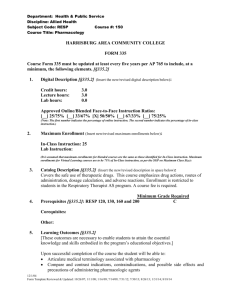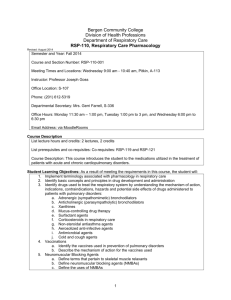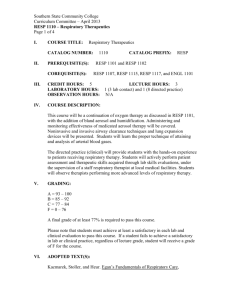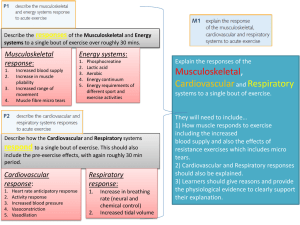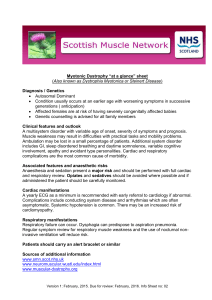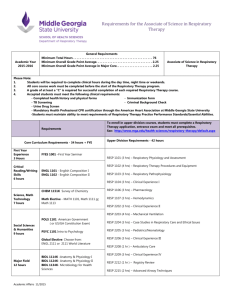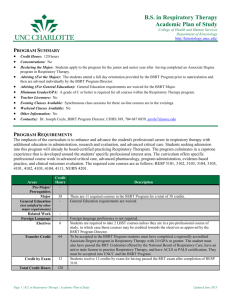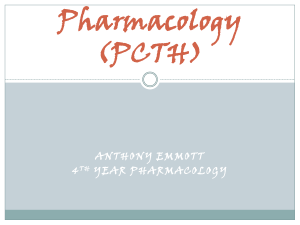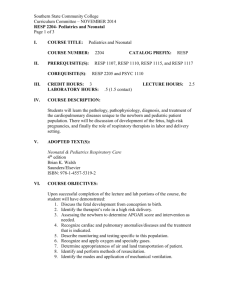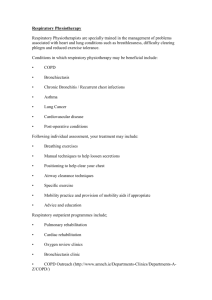RESP 1107- Pharmacology for the Respiratory Therapist
advertisement
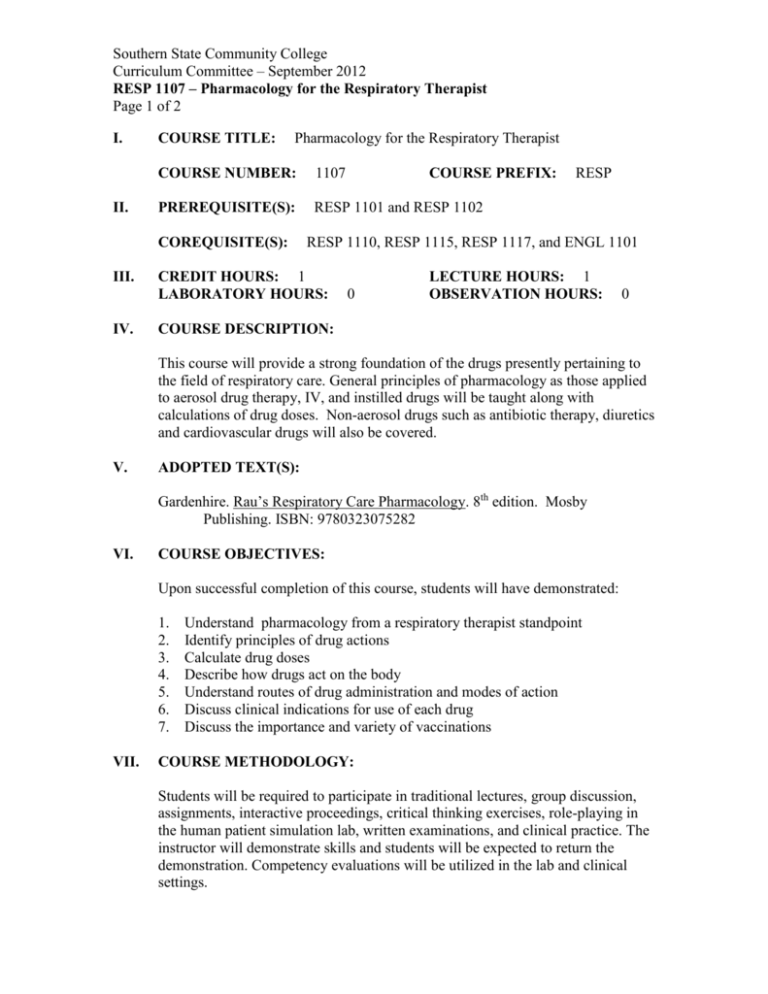
Southern State Community College Curriculum Committee – September 2012 RESP 1107 – Pharmacology for the Respiratory Therapist Page 1 of 2 I. II. COURSE TITLE: Pharmacology for the Respiratory Therapist COURSE NUMBER: 1107 PREREQUISITE(S): RESP 1101 and RESP 1102 COREQUISITE(S): III. IV. COURSE PREFIX: RESP RESP 1110, RESP 1115, RESP 1117, and ENGL 1101 CREDIT HOURS: 1 LABORATORY HOURS: 0 LECTURE HOURS: 1 OBSERVATION HOURS: 0 COURSE DESCRIPTION: This course will provide a strong foundation of the drugs presently pertaining to the field of respiratory care. General principles of pharmacology as those applied to aerosol drug therapy, IV, and instilled drugs will be taught along with calculations of drug doses. Non-aerosol drugs such as antibiotic therapy, diuretics and cardiovascular drugs will also be covered. V. ADOPTED TEXT(S): Gardenhire. Rau’s Respiratory Care Pharmacology. 8th edition. Mosby Publishing. ISBN: 9780323075282 VI. COURSE OBJECTIVES: Upon successful completion of this course, students will have demonstrated: 1. 2. 3. 4. 5. 6. 7. VII. Understand pharmacology from a respiratory therapist standpoint Identify principles of drug actions Calculate drug doses Describe how drugs act on the body Understand routes of drug administration and modes of action Discuss clinical indications for use of each drug Discuss the importance and variety of vaccinations COURSE METHODOLOGY: Students will be required to participate in traditional lectures, group discussion, assignments, interactive proceedings, critical thinking exercises, role-playing in the human patient simulation lab, written examinations, and clinical practice. The instructor will demonstrate skills and students will be expected to return the demonstration. Competency evaluations will be utilized in the lab and clinical settings. RESP 1107 – Pharmacology for the Respiratory Therapist Page 2 of 2 VIII. GRADING A = 93-100 B = 85-92 C = 77-84 F = 0-76 A final grade of at least 77% is required to pass this course. Please note that students must achieve at least a satisfactory in each lab and clinical evaluation to pass this course. If student fails to achieve a satisfactory in lab or clinical practice, regardless of lecture grade, student will receive a grade of F for the course. IX. COURSE OUTLINE: Principles of drug action Administration of Aerosolized Agents Calculating Drug Doses The effects of drugs on the central and peripheral nervous system Adrenergic bronchodilators Anticholinergic bronchodilators Using Mucoactive therapy with physiotherapy and airway clearance devices Clinical indications for surfactants Corticosteroids in respiratory care Critical care cardiovascular drugs Diuretic agents Vaccinations Sample Course Schedule Week 1- Principles of drug actions Week 2- Administration of aerosolized medications Week 3- Calculating the correct drug dosages Week 4- How drugs affect the central and peripheral nervous system Week 5- Adrenergic bronchodilators and their actions Week 6- Anticholinergic bronchodilators and how they work Week 7- Mucolytics and how they work along with airway clearance devices Week 8- Indications for surfactant and how to administer Week 9- Corticosteroids in respiratory and administration Week 10- Critical care cardiovascular drugs Week 11- Continue cardiovascular drugs Week 12- Sedatives Week 13- Vaccines Week 14- Forms of drug administration RESP 1107 – Pharmacology for the Respiratory Therapist Page 2 of 2 Week 15- Diuretics and how they work on the body Finals Week- Comprehensive Final Exam X. OTHER REQUIRED TEXTS, SOFTWARE, AND MATERIALS: Calculator XI. EVALUATION: Knowledge is evaluated through performance evaluation of student’s ability to meet objectives related to the lecture component of course; other specific grading/ evaluation requirements as per instructor will be given to students the first day of class. XII. SPECIFIC MANAGEMENT REQUIREMENTS: At the discretion of the instructor XIII. OTHER INFORMATION: FERPA: Students need to understand that your work may be seen by others. Others may see your work when being distributed, during project work, or if it is chosen for demonstration purposes. Students also need to know that there is strong possibility that your work may be submitted to other entities for the purpose of plagiarism checks. DISABILITIES: Students with disabilities may contact the Disabilities Service Office, Central Campus, at 800-628-7722 or 937-393-3431.
